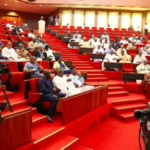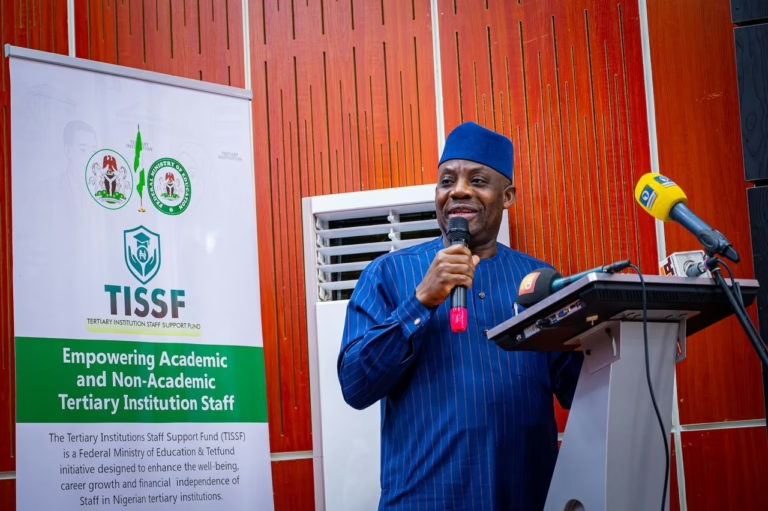The Federal Government has sanctioned a sweeping overhaul of admission criteria for all Nigerian tertiary institutions, introducing a more adaptable and inclusive system designed to broaden access to higher education nationwide.
This initiative follows the endorsement of the National Guidelines for Entry Requirements into Tertiary Institutions in Nigeria, as disclosed by Boriowo Folasade, Director of Press and Public Relations at the Federal Ministry of Education.
Leading this transformative policy is the Minister of Education, Dr. Maruf Tunji Alausa, who emphasized that the reform aligns with President Bola Tinubu’s Renewed Hope Agenda by fostering equitable educational opportunities and empowering Nigerian youth.
According to the Ministry, “This policy marks a significant advancement in promoting inclusiveness and catalyzing national progress through fair access to education.”
Dr. Alausa highlighted that the reform addresses the limitations of previous admission standards, which often excluded many qualified applicants despite their academic eligibility.
He pointed out that although over two million candidates participate in the Unified Tertiary Matriculation Examination (UTME) annually, only approximately 700,000 secure admission-a gap attributed to outdated and inflexible entry requirements rather than a shortage of capable students.
“It is imperative to replace this disparity with fairness and opportunity. Our objective is to ensure that deserving candidates are not barred from education due to antiquated policies,” Dr. Alausa stated.
The revised guidelines update admission prerequisites across universities, polytechnics, colleges of education, and Innovation Enterprise Academies (IEAs), while upholding academic standards.
For university admissions, applicants must possess at least five credit passes in relevant subjects, including English Language, achieved within a maximum of two sittings. Mathematics remains a compulsory subject for Science, Technology, and Social Science courses but is no longer a requirement for Arts disciplines.
Polytechnic National Diploma (ND) candidates are required to have a minimum of four credit passes in pertinent subjects, including English Language for non-science courses and Mathematics for science-related fields.
At the Higher National Diploma (HND) level, applicants must present five credits, encompassing both English Language and Mathematics.
For the Nigeria Certificate in Education (NCE) level at Colleges of Education, a minimum of four credits is mandated, with English compulsory for Arts and Social Sciences, and Mathematics mandatory for Science, Vocational, and Technical courses.
Bachelor of Education (B.Ed) programmes at Colleges of Education require five credits, including English and Mathematics, contingent on the specific area of study.
Innovation Enterprise Academies (IEAs) will now align their admission standards with those of polytechnics for ND programmes. Additionally, the government has abolished the National Innovation Diploma (NID), replacing it with the National Diploma (ND) to standardize qualifications and enhance institutional credibility.
The National Board for Technical Education (NBTE) has been tasked with re-accrediting all IEAs nationwide according to the updated criteria. Institutions failing to meet full accreditation standards face potential de-accreditation.
Dr. Alausa anticipates that these reforms will create admission opportunities for an extra 250,000 to 300,000 students each year.
“Our youth are the driving force of this nation. This reform guarantees that every Nigerian young person has an equitable chance to acquire education, develop skills, and thrive. We are committed to equipping them to realize their potential and contribute significantly to the country’s growth,” he affirmed.
The Federal Government reiterated its dedication to fostering inclusive education, enhancing human capital, and empowering young Nigerians in line with President Tinubu’s Renewed Hope Agenda.






















0 Comments